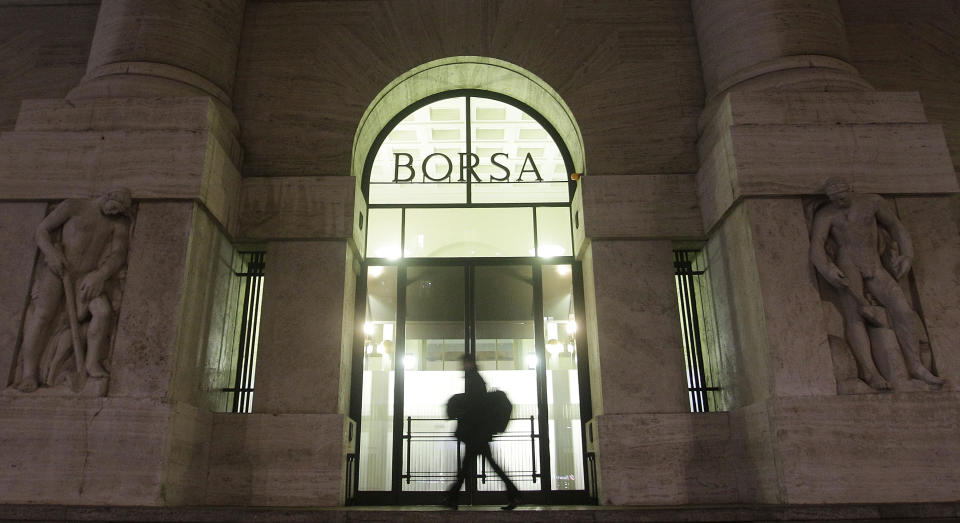Coronavirus: Six EU countries scrap ban on profiting from stock price crashes

Financial regulators have scrapped temporary curbs on short selling in several European countries introduced in the wake of the coronavirus crisis.
Watchdogs in six EU states had sought to rein in the freefall on stock markets in March through emergency curbs on attempts to profit from falls. EU regulations allow such bans on short-selling where necessary to prevent a “serious threat to financial stability or to market confidence.”
The European Securities and Markets Authority (ESMA) said on Monday the curbs on shorting specific stocks had not been renewed by authorities in France, Italy, Spain, Belgium, Austria and Greece.
Short selling or ‘shorting’ involves betting against a stock or bond, and can prove controversial, particularly in times of crisis. An investor borrows shares and sells them on in the expectation they can rebuy them at a lower price, keeping the difference when returning them to the lender.
Neil Wilson, chief markets analyst at Markets.com, said the ban had aimed to “stem some of the bloodletting” seen in March, and its reversal was a positive sign for stocks. “This move signals greater confidence among regulators that the bottom is in for equities.”
READ MORE: Looser lockdown rules lift stocks after worst week since mid-March
The AMF, the French financial markets authority, said it had seen a “progressive normalisation” since its one-month ban was introduced on 17 March.
“In a uniformly declining market, with considerable uncertainties about the future extent of the decline, an increase in short selling could have had a procyclical influence that the AMF wanted to avoid by implementing this exceptional measure.”
The UK and Germany are among the countries which opted not to ban short-selling. Britain’s Financial Conduct Authority (FCA) said at the height of market turbulence in March that net short selling was “low” as a share of all market activity. “There is no evidence that short selling has been the driver of recent market falls,” said the regulator at the time.
The bans had frustrated many investors, with different countries’ divergent responses running against the grain of the EU’s drive for bloc-wide consistency.
The World Federation of Exchanges, hedge funds industry associations AIMA and Managed Funds Association, and the European Principal Traders Association wrote to French authorities last month demanding an end to the ban, according to Reuters.
READ MORE: Italy and Spain impose shorting bans after global sell-off
“Over the longer term, the bans risk undermining confidence in key European financial markets and hampering the goal of a capital markets union, something that will be vital to European recovery from the profound economic shock caused by COVID-19,” said the letter.

 Yahoo Finance
Yahoo Finance 